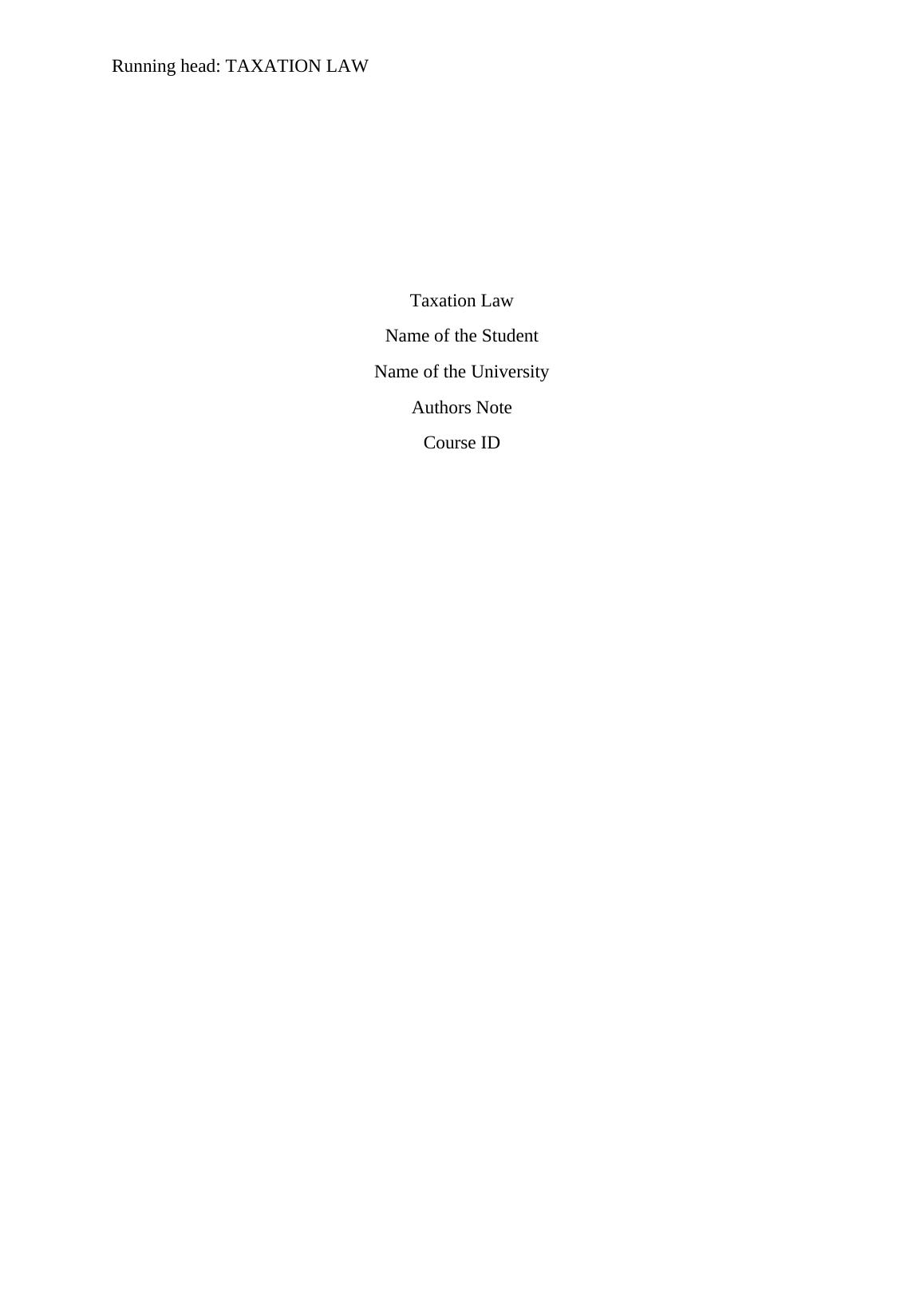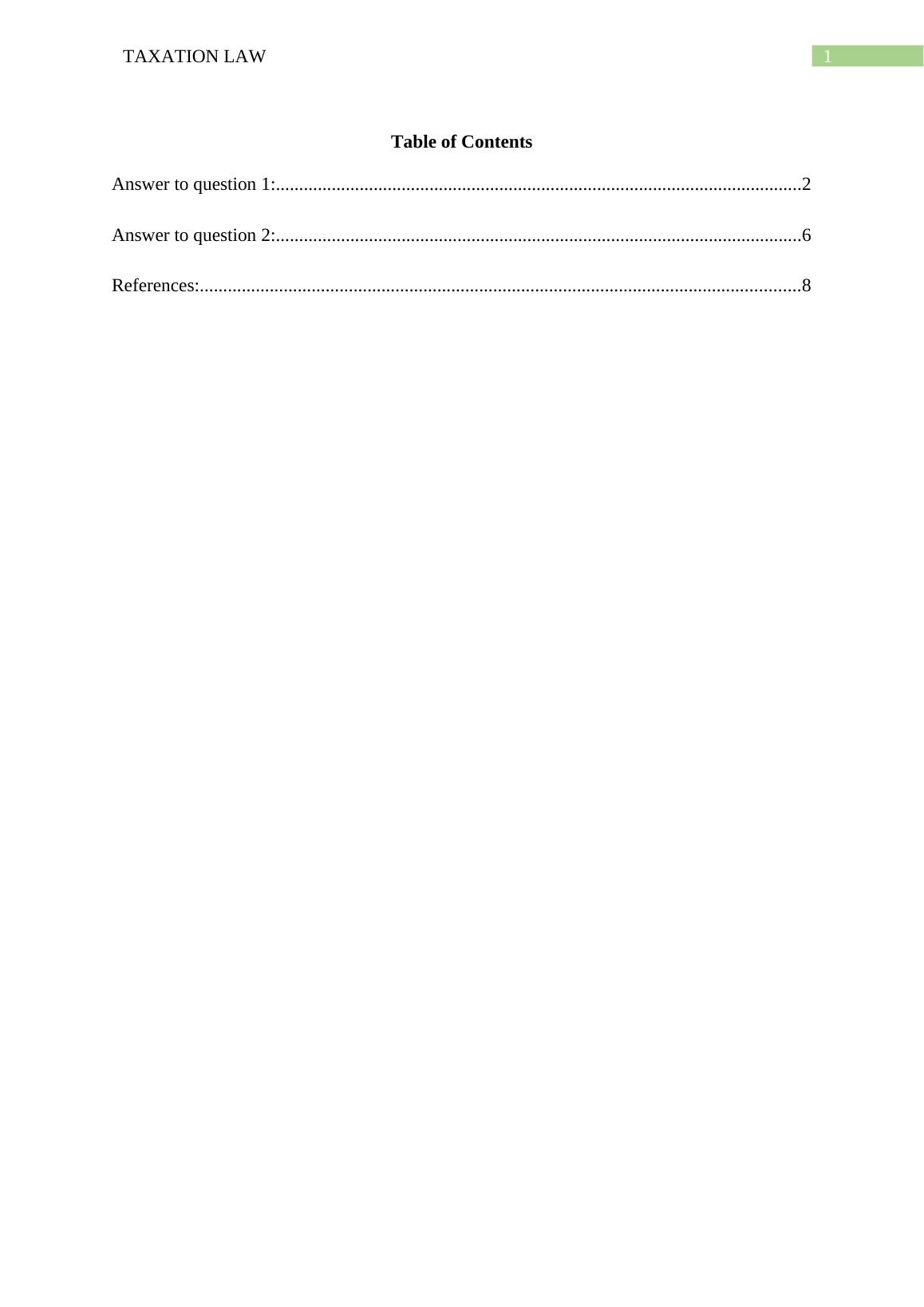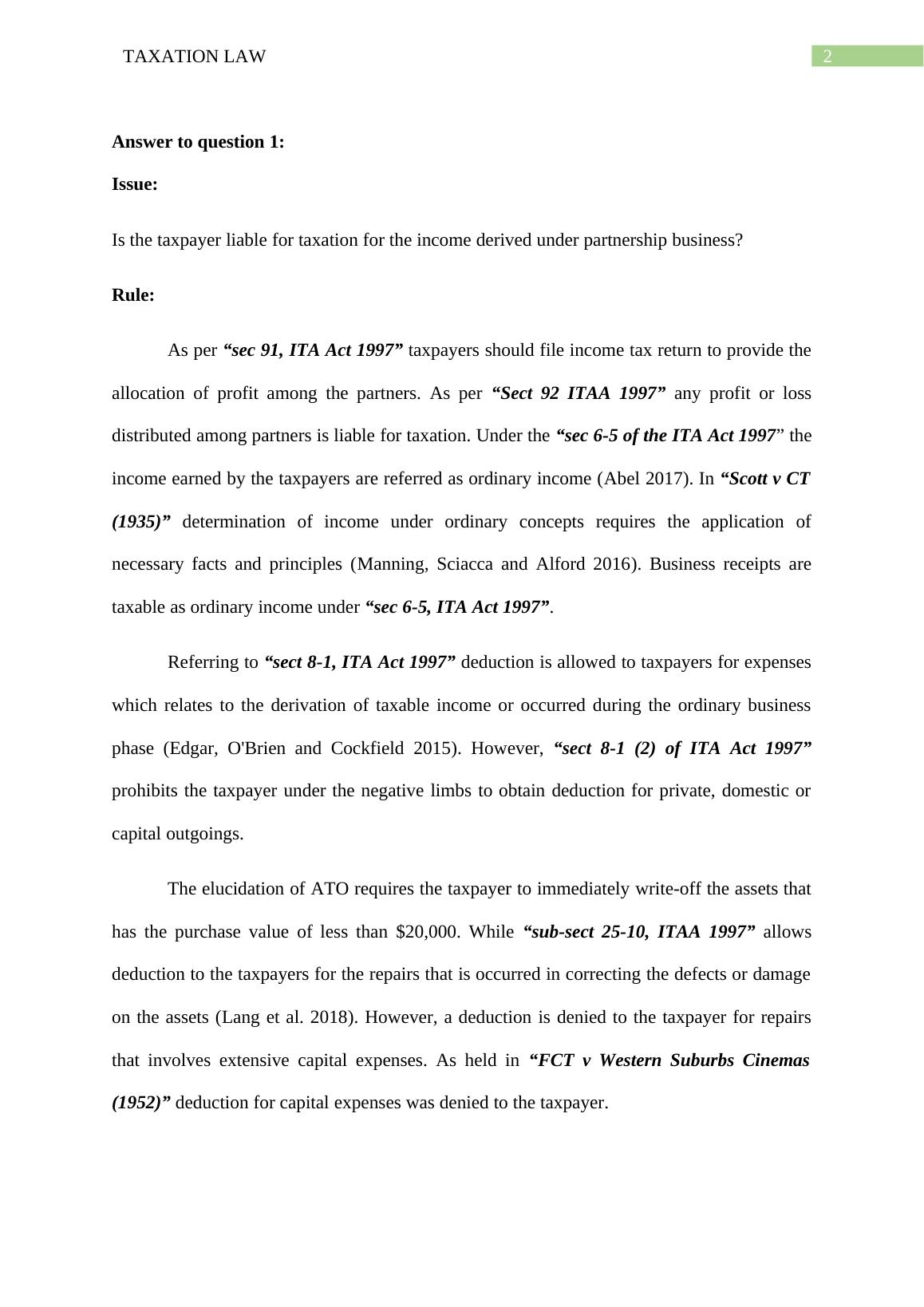Taxation Law
Added on 2023-04-21
9 Pages1714 Words371 Views
End of preview
Want to access all the pages? Upload your documents or become a member.
Taxation Law
|11
|2304
|498
Taxation Law: Case Study on Partnership Income and Deductions
|13
|2007
|293
Taxation Law
|10
|2114
|297
Taxation Law: Partnership Profit and Deductions
|13
|2659
|360
Taxation Law
|11
|1890
|213
Taxation Law
|12
|2367
|153



